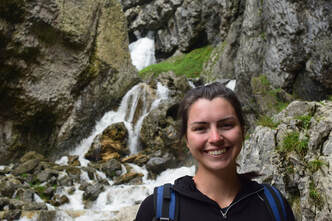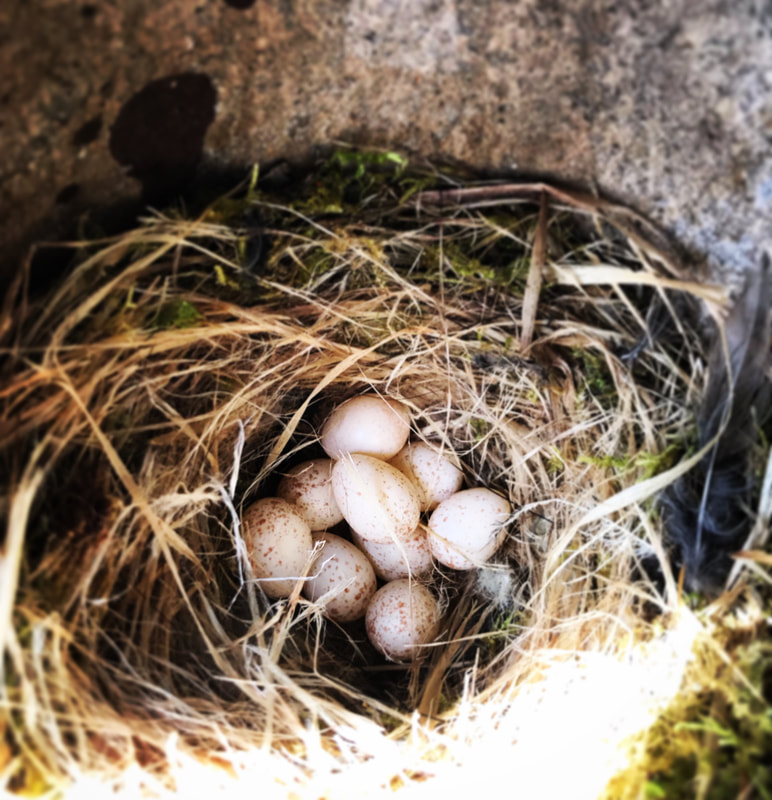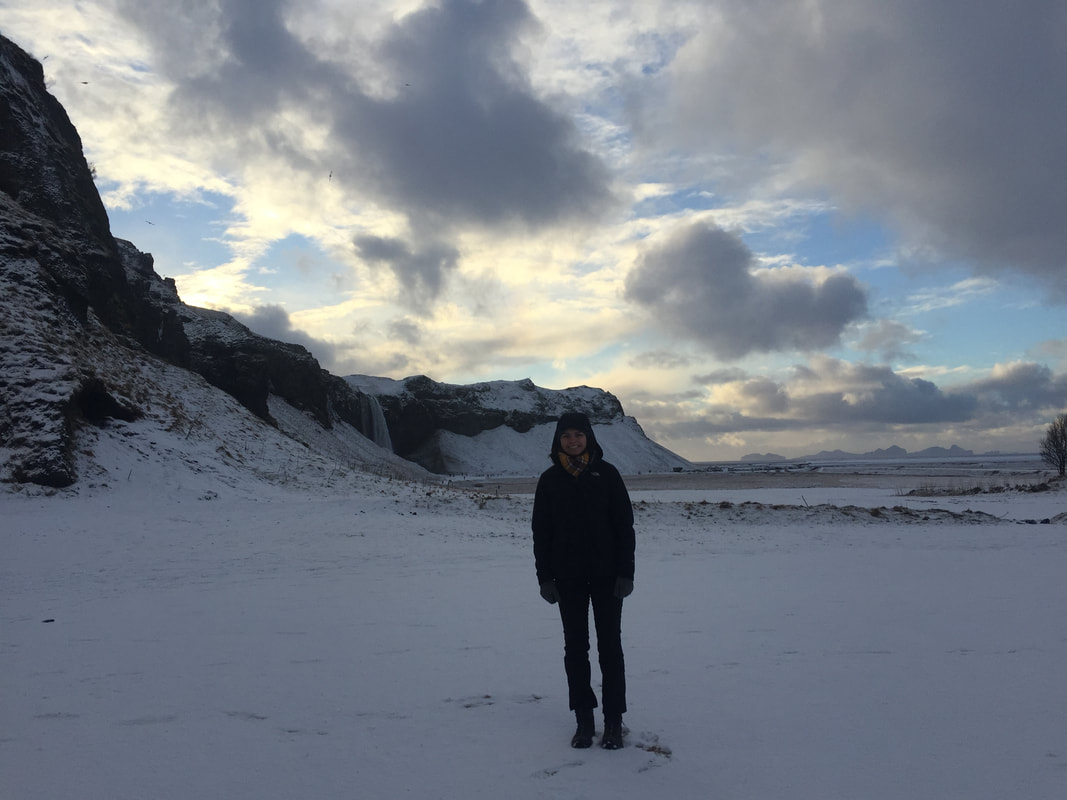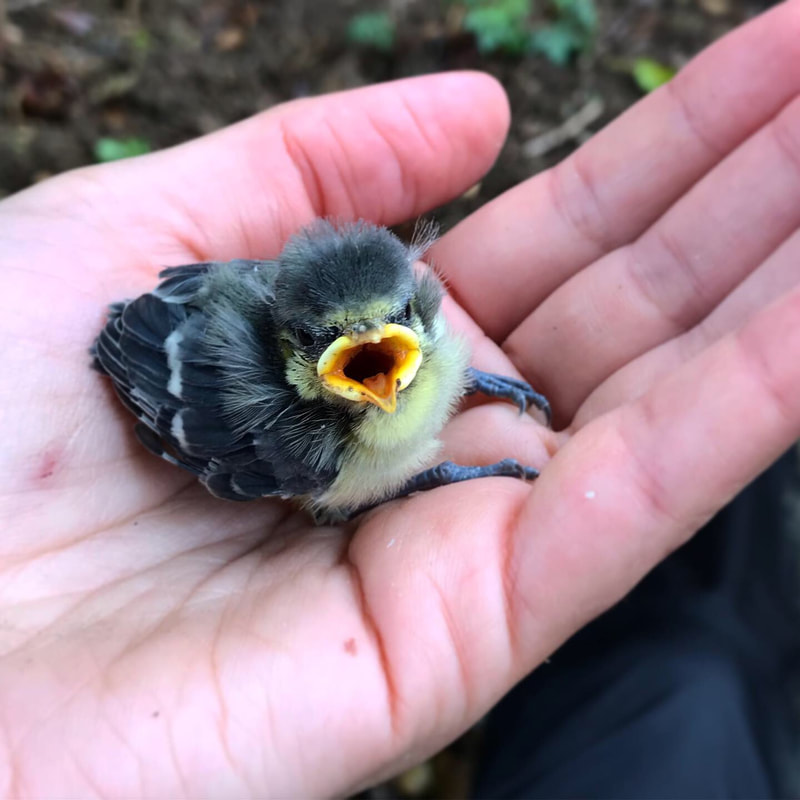
Elizabeth Gillie
I have a particular interest in how changing climate is impacting species and ecosystems. Climate is changing more rapidly across the Arctic and higher latitudes and there are widespread expectations that many species from temperate regions will move into the Arctic. I am specifically interested in how Arctic ecosystems will change as a consequence of these shifting species’ distributions. As part of Durham University’s Arctic Research Centre for Training and Interdisciplinary Collaboration (DurhamARCTIC), the aim of my PhD is to assess the potential for the Arctic to be invaded by novel species and the potential for novel assemblages to form. Using distribution modelling, I will explore the impacts of projected changes on Arctic ecosystems, focusing on key terrestrial and marine species and habitats. My research will explore the likelihood of species interactions across trophic webs facilitating or limiting the range shifts being realized. These models can then by synthesized to understand the consequent ecosystem and human impacts of such changes. Prior to starting my PhD my research has focused on understanding habitat characteristics that determine species occurrence, fish social behaviour and exploring phenological mismatch in birds. For my MSc project, I used an altitudinal gradient to study variation in breeding phenology, spring phenology and resource peaks in a population of tits in the French Pyrenees. Position: PhD Student in the Department of Biosciences
Supervised by: Prof. Stephen Willis, Dr. Sally Street, Aleksi Lehikoinen (Finnish Museum of Natural History, Helsinki) Contact details: Department of Biosciences, Durham University, South Road, Durham, DH1 3LE Email: [email protected] Education
2020 - Present PhD Biosciences, Durham University 2018 - 2019 MSc Conservation and Biodiviersity, University of Exeter 2014 - 2018 BSc Zoology with Professional Training Year, Cardiff University |
Publications
Riley, R., Poe, T. P., Gillie, E. R., Boogert, N. J. & Manica, A. (2020). The development of social interactions in Corydoras aeneus larvae. Behaviour: 1-25.
Riley, R., Gillie, E., Horswill, C., Johnstone, R., Boogert, N. & Manica, A. (2019). Coping with strangers: how familiarity and active interactions shape group coordination in Corydoras aeneus. Royal Society Open Science 6: 1-14.
Riley, R. J., Gillie, E. R., Savage, J. L., Boogert, N. J., Manica, A. & Jungwirth, A. (2019) The role of tactile interactions in flight responses in the Bronze Cory catfish (Corydoras aeneus). Ethology: 1-11.
Riley, R., Poe, T. P., Gillie, E. R., Boogert, N. J. & Manica, A. (2020). The development of social interactions in Corydoras aeneus larvae. Behaviour: 1-25.
Riley, R., Gillie, E., Horswill, C., Johnstone, R., Boogert, N. & Manica, A. (2019). Coping with strangers: how familiarity and active interactions shape group coordination in Corydoras aeneus. Royal Society Open Science 6: 1-14.
Riley, R. J., Gillie, E. R., Savage, J. L., Boogert, N. J., Manica, A. & Jungwirth, A. (2019) The role of tactile interactions in flight responses in the Bronze Cory catfish (Corydoras aeneus). Ethology: 1-11.
Awards and Fellowships
Dean's Commendation for Exceptional Performance, 2019
The Edith Sheppard Prize, 2018
The Centenary Prize, 2018
Professional Training Year Prize, 2018
Dean's Commendation for Exceptional Performance, 2019
The Edith Sheppard Prize, 2018
The Centenary Prize, 2018
Professional Training Year Prize, 2018




